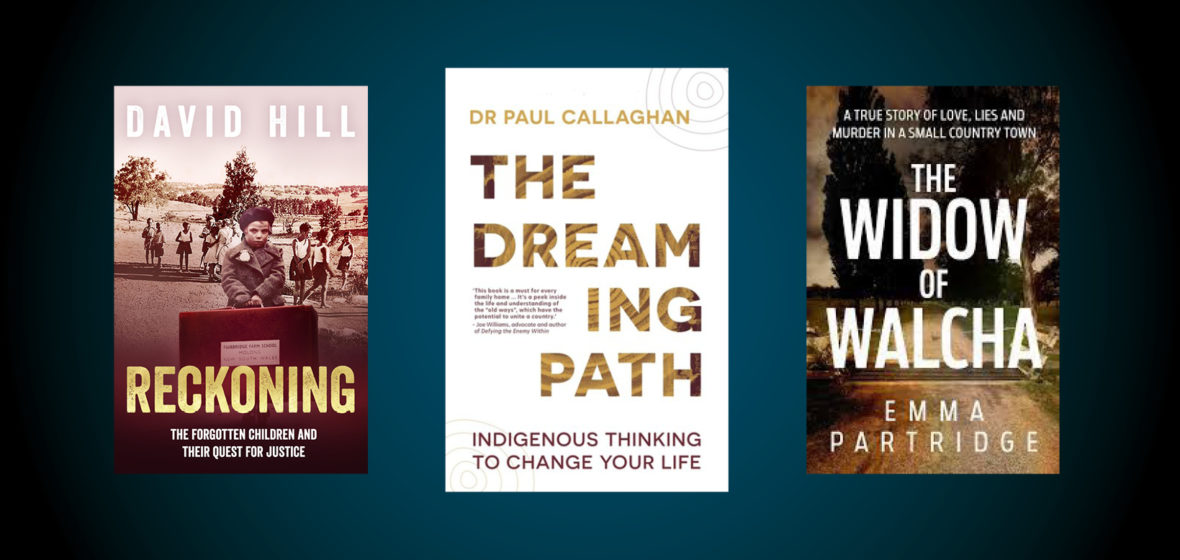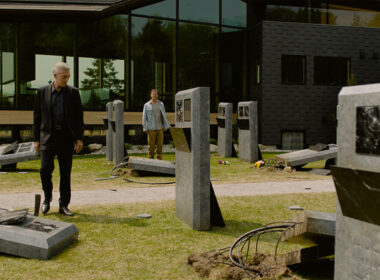A moving guide to Aboriginal lore, a memoir of reckoning within the justice system and a stranger-than-fiction true crime tale: here are our non-fiction picks of the week
The Dreaming Path
Paul Callaghan and Uncle Paul Gordon
Pantera Press
The Dreaming Path was a privilege to read. On putting the book down, I fired off an email and told the author just that.
When I first opened this book, I thought that I would “get through it” in a couple of days. But the more I read, the more time I wanted to take to immerse myself in the storytelling.
This book by Paul Callaghan and Uncle Paul Gordon, takes the reader on a journey to understanding Aboriginal Lore and how it remains relevant today. At times, Paul Callaghan exposes his vulnerability with the reader. That gave me permission to be vulnerable within myself.
The writing is beautiful and grounding. The strategies The Dreaming Path maps out are at once perceptive and practical. The Dreaming Path teaches much about Aboriginal culture. At the same time, I found it also taught me so much about myself. In a guided and often surprising way, the book unearthed a lot of emotions for me.
This is a generous book that deserves to be read, but please do not put it back on the shelf. Share it widely.
Miriam Wyzenbeek
Join author Paul Callaghan and President Joanne van der Plaat on 8 June 2022, for our Staying Well in the Law with Aboriginal Lore fireside chat. Registration for this in-person event includes a copy of The Dreaming Path and breakfast.
The Widow of Walcha
Emma Partridge
Simon and Schuster
Truth can be stranger than fiction (which explains the heaving true crime shelves at every bookstore) but this forensic account of the murder of Mathew Dunbar in country NSW has, at its heart, a story as twisted as any detective thriller. The facts of the case have been well reported: Dunbar had signed over his multi-million-dollar sprawling merino property in the NSW Northern Tablelands to his partner Natasha Beth Darcy, who then mixed a cocktail of drugs inside a Nutribullet to sedate him, before gassing him to death. Darcy attributed Dunbar’s death to suicide but the so-called ‘Widow of Walcha’ was brought undone by a wealth of evidence against her, including hundreds of Google searches on how to kill someone without detection (including “11 toxic wild plants that look like food”, “99 undetectable poisons” and “how long after suicide is there a crime scene?”).
Partridge, an experienced crime and court reporter for newspapers and television in Sydney, broke the story of Darcy’s arrest. As a journalist for News Corp and later Channel Nine, she followed every development of the case right up until Darcy’s conviction for murder and sentence, handed down in February of this year, to 40 years’ jail. While details of the murder and subsequent court proceedings will not surprise those who followed the case in the news, the breadth of interviews, reportage and research material, complemented by a clean and compassionate writing style, makes The Widow of Walcha well worth the read. From local hospitality staff in Walcha, where rumours abounded concerning suspicions about Darcy, to former partners of the now convicted killer and their freakish proximity to the crime scene, as well as Mathew Dunbar’s family and friends; the interviews, and a reporter’s sensitive handling of them, vividly bring to life a tale so bizarre it has to be real.
Amy Dale
Reckoning
David Hill
Penguin Books Australia
I must confess at the outset to, on and off, knowing and working with David Hill for some 45 years. He could be brash and opinionated, and quite brilliant. But the secrets David carried with him on the Fairbridge Farm School makes you reassess him. The damage done to him and, to a greater degree, those children who were exported from the UK because of poverty, no families, and to boost the “white stock” in the then Empire is unimaginable.
Reckoning follows on from The Forgotten Children and while it recaps that first highly disturbing book, this is, as its title suggests, the getting of justice. The saga is enhanced through the words of many Fairbridge children who, some from the age of four or five, left what families they had and ended up at Molong in Central West NSW.
Barefoot in winter frost, working from 6am until dark, little schooling, no warm human comfort or contact, beatings, sexual abuse and the total failure of supposed high-minded individuals to acknowledge the reality of what was happening, and rectify it, makes reading the book confronting. Successive investigations and damning official reports were buried and the organisation, along with the UK, Commonwealth and state governments, turned a blind eye and allowed more innocents to be exported, abused and exploited. Recognition was boosted after Slater + Gordon took the case against governments and the organisation. Years passed as the defendants used delays and obstructions through the Supreme Court until the then Crown Solicitor had to apologise for delaying similar litigation. Public apologies by leaders were made. Litigation firms often face criticism but, in this case, dedication and commitment did get the recognition and justice, albeit decades too late for many. It is a rewarding but often harrowing read – and compelling.
Brian Dale




